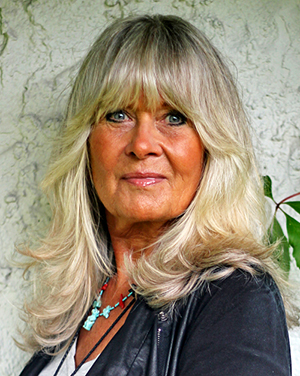 Genetically modified food is called a non-issue in Sweden, considered being fenced by the law. A dangerous attitude that could lead to flooding store shelves of GMOs before consumers have time to take a stand. The Swedish Board of Agriculture, Arla Foods and Findus, together with the Swedish University of Agricultural Sciences, are already underway.
Genetically modified food is called a non-issue in Sweden, considered being fenced by the law. A dangerous attitude that could lead to flooding store shelves of GMOs before consumers have time to take a stand. The Swedish Board of Agriculture, Arla Foods and Findus, together with the Swedish University of Agricultural Sciences, are already underway.
By Ulla Gabay, journalist, author and lecturer
Text and photo: Ulla Gabay. Ulla is a journalist, author and lecturer from Gothenburg. Focusing on industrial food’s impact on health. In October 2014 she released the book HEALTH TRAP – the environmental bomb in the stomach.
Biotechnology is exciting and can help mankind in several areas. But to unleash the genetically modified food may currently be likened to clean roulette. Authorities to assess the security are referred to the industry’s own studies. And patent protection provides few opportunities for an independent review in advance. So the consensus, saying that GM food is safe, comes from within the industry itself. In the current situation no one can answer how it affects us in the long run. Even less what happens to future generations.
Independent researchers challenging the consensus are quickly knocked out in the cold. Arpad Pusztai, the world’s leading scientists around the plant protein lectin, is a famous example. In 1998 the British government assigned him to develop a security protocol for the study of genetically engineered plant products. Pusztai was charged with 27 study documentations from companies, applying for a license. At his own studies in rats, however, Pusztai found that a GM potato up for approval caused liver damage, inflamed organs and precursors of cancer. After appearing in the media with the results, Pusztai overnight lost his employment since 36 years as a researcher at the Rowett Research Institute, Aberdeen.
Big bucks in the pot
The Swedish Board of Agriculture wrote in 2009 in their report GMO on the feed market, “The slow process in the EU to approve new GM events means a cost disadvantage visavi the rest of the world for EU producers of animal products.” Moreover the same department in 2012 approved a request from biotech giant Monsanto for field trials of GM sugar beets.
Other companies in GM action in Sweden are Arla Foods and Findus. In their production of cheese Arla now, contrasting the use of natural rennet retrieved from calf stomachs, wants to expand the use of artificial rennet produced by bacterial genes. And Findus, with the help of the Swedish University of Agricultural Sciences, has set out to prevent pea root rot, using genome from a wild pea mixed with an industrial one.
A similar project in Australia in 2005 was terminated even though the peas proved resistance to insect pests. The GM protein induced, simultaneously caused allergy in mice, according to a report in New Scientist.
In the US, where GM food – Frankenfoods – represent upwards of 70 percent in supermarkets, consumers are struggling to at least get it labeled. It is being compared to the release of trans fats. It took some 30 years before the effects of that appeared in obesity, chronic disease and premature death.
The toxicologist with EPA Suzanne Wuerthele says:
“We are confronted with the most powerful technology the world has ever known, and it is being rapidly deployed with almost no thought whatsoever to its consequences” / Source: ”Busting Myths About GMOs”
Anyone who wants to check the consequences can start by reading the environmental activist Vandana Shiva’s article about Monsanto destroying farming in India “The Seeds of Suicide”. Shiva has been named one of the world’s most influential women by Forbes and received the Alternative Nobel Prize Right Livelihood Award.
Environmental lawyer Andrew Kimbrell, by The Guardian named one of 50 people in the world who can save our planet, believes that humanity is now at a critical crossroads. Where we must choose natural diet for the protection of both health and biodiversity.
By Ulla Gabay

